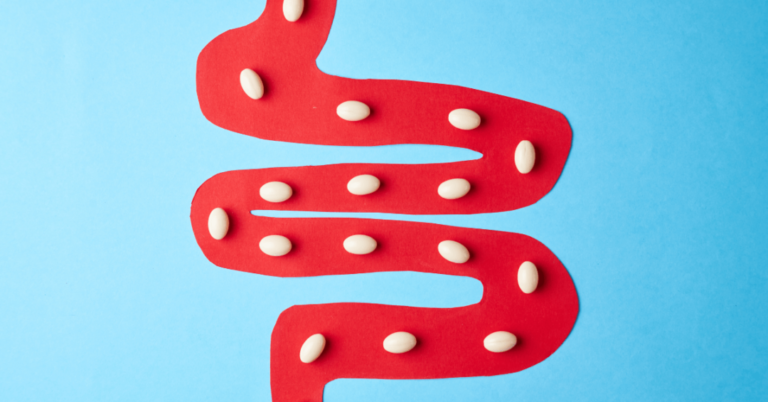Probiotic Strains For Weight Loss: Best Probiotic For Weight Loss
Some links on this page are affiliate links (including Amazon Associate links) which means that, if you choose to make a purchase, we may earn a small commission at no extra cost to you. We greatly appreciate your support!
Did you know that your gut bacteria could be the secret weapon in your weight loss journey? It’s true! A groundbreaking study published in Nature Medicine found that certain probiotic strains can increase metabolism and fat burning by up to 15%! In this article, we’ll explore the fascinating world of probiotics and explore how these tiny microorganisms can have a big impact on your waistline. Get ready to discover the 10 best probiotic strains for weight loss that could revolutionize your health and fitness routine!
Understanding The Effects Of Probiotics In Weight Loss
What Are Probiotics For Weight Loss?
Probiotics are live bacteria and yeasts that are good for you, especially your digestive system. Think of them as friendly bacteria that help keep your gut healthy. These little guys are naturally found in your body, but you can also get more of them from certain foods like yogurt, kefir, and sauerkraut, or even in supplement form.
Health Benefits of Probiotics
Probiotics do more than just aid digestion—they have a whole host of health benefits. They can boost your immune system, improve skin health, and even may help enhance your mood. But one of the most exciting things about probiotics is their potential to help with weight loss.
The Gut-Brain Axis and Weight Management
You might wonder how something in your gut can affect your weight. This is where the gut-brain axis comes into play. The gut-brain axis is a two-way communication system between your gut and your brain. Your gut has its own nervous system, often called the “second brain,” which sends signals to your actual brain. These signals can influence everything from your mood to your appetite.
How Probiotics Help Metabolism, Appetite, and Fat Storage
When your gut is healthy, itsends signals that help regulate your metabolism, control your appetite, and even manage how your body stores fat. Probiotics play a key role in this process by helping maintain a healthy balance of bacteria in your gut. This balance can make it easier for your body to burn calories, reduce cravings, and prevent fat from piling up.
Summary
Probiotics might not be a magic pill for weight loss, but they can be a helpful tool in your weight loss journey. By boosting your gut health, probiotics can support better digestion, a more efficient metabolism, and healthier fat storage—all of which are important for achieving and maintaining a healthy body weight.
Top 10 Best Probiotic Strains For Weight Loss In 2025
When it comes to probiotics, not all strains are created equal—especially when it comes to weight loss. Certain probiotic strains have been shown to be particularly effective at helping you shed pounds by targeting different aspects of your metabolism, appetite, and overall gut health. Let’s dive into the top 10 probiotic strains that can give your weight loss journey a boost.
1. Lactobacillus Gasseri: The Belly Fat Buster
Lactobacillus gasseri is a standout when it comes to targeting belly fat. Studies have shown that this strain can help reduce visceral fat, which is the stubborn fat that wraps around your organs and can lead to health issues. By incorporating Lactobacillus gasseri into your diet, you may notice a reduction in waist circumference and a flatter stomach.
2. Bifidobacterium Lactis: The Metabolism Booster
Bifidobacterium lactis is known for its ability to give your metabolism a kickstart. A faster metabolism means your body burns calories more efficiently, even when you’re at rest. This strain can help you maintain a healthy weight by increasing the number of calories you burn throughout the day.
3. Lactobacillus Rhamnosus: The Appetite Suppressant
Struggling with cravings? Lactobacillus rhamnosus might be your new best friend. This probiotic strain has been shown to help curb appetite and reduce cravings, making it easier to stick to a healthy eating plan. It’s particularly helpful for those who find themselves reaching for snacks when they’re not really hungry.
4. Lactobacillus Plantarum: The Inflammation Reducer
Inflammation in the body can make it harder to lose weight and can even lead to weight gain. Lactobacillus plantarum is known for its anti-inflammatory properties, helping to calm inflammation and create a healthier environment in your gut. By reducing inflammation, this strain can make it easier for your body to shed excess pounds.
5. Bifidobacterium Breve: The Fat Metabolism Enhancer
If you want to get better at burning fat, Bifidobacterium breve is the strain to look for. This probiotic helps your body break down fat more efficiently, turning it into energy instead of storing it. By boosting fat metabolism, Bifidobacterium breve can help you slim down faster.
6. Lactobacillus Casei: The Insulin Sensitivity Improver
Lactobacillus casei is another powerful probiotic strain that can support weight loss by improving your body’s sensitivity to insulin. Better insulin sensitivity means your body can more effectively manage blood sugar levels, reducing the risk of storing excess fat. This strain is particularly beneficial for those at risk of developing type 2 diabetes.
7. Bifidobacterium Bifidum: The Digestion Optimizer
A healthy digestive system is crucial for weight loss, and Bifidobacterium bifidum is one of the best strains for optimizing digestion. It helps break down food more efficiently, ensuring that your body absorbs the nutrients it needs while keeping your digestive system running smoothly.
8. Lactobacillus Acidophilus: The Cholesterol Reducer
Lactobacillus acidophilus is well-known for its ability to lower cholesterol levels. High cholesterol can be a barrier to weight loss and overall health, so incorporating this strain into your diet can help you achieve a healthier heart and a slimmer waistline.
9. Bifidobacterium Longum: The Bloating Minimizer
If you often feel bloated, Bifidobacterium longum could be the answer. This strain helps reduce bloating by improving digestion and balancing the bacteria in your gut. A flatter, more comfortable stomach can make a big difference in how you look and feel.
10. Lactobacillus Fermentum: The Antioxidant Powerhouse
Last but not least, Lactobacillus fermentum is a powerful antioxidant that helps protect your body from oxidative stress. Oxidative stress can contribute to weight gain and aging, so adding this strain to your probiotic regimen can help you stay youthful and slim.
Summary
By incorporating these top 10 probiotic strains into your diet, you can support your weight loss efforts and improve your overall health. Each strain offers unique benefits, making them a powerful addition to your wellness routine.
How To Incorporate Probiotic Strains Into Your Weight Loss Plan
Now that you know which probiotic strains can help with weight loss, the next step is figuring out how to get them into your daily routine. Whether you prefer getting your probiotics from food or supplements, there are plenty of ways to make sure you’re reaping the benefits. Here’s how to get started.
Probiotic-Rich Foods to Add to Your Diet
One of the easiest and most natural ways to get more probiotics is by adding probiotic-rich foods to your diet. These foods are not only delicious but also packed with those friendly bacteria that can help you lose weight.
- Yogurt: Look for yogurt that contains live and active cultures. Greek yogurt is a great option because it’s also high in protein, which can keep you feeling full longer.
- Kefir: This tangy, fermented milk drink is loaded with probiotics and is a great addition to smoothies or enjoyed on its own.
- Sauerkraut: This fermented cabbage dish is rich in probiotics and adds a nice crunch to salads and sandwiches.
- Kimchi: A spicy Korean dish made from fermented vegetables, kimchi is full of probiotics and adds a flavorful kick to meals.
- Miso: This Japanese seasoning made from fermented soybeans can be added to soups, sauces, and dressings for a probiotic boost.
- Tempeh: Another fermented soybean product, tempeh is a protein-rich meat substitute that’s great in stir-fries or on sandwiches.
- Pickles: Pickles made through natural fermentation (not with vinegar) are another tasty way to get more probiotics into your diet.
By incorporating these foods into your meals, you can enjoy the benefits of probiotics while also adding variety and flavor to your diet.
Best Probiotic Supplements: Choosing the Best Probiotic for Weight Loss
If you’re not a fan of probiotic-rich foods or want to ensure you’re getting specific strains, supplements are a great option. When choosing a probiotic supplement, look for products that list the specific strains mentioned earlier, like Lactobacillus gasseri or Bifidobacterium lactis.
Here are a few tips for picking the right probiotic supplement:
- Check the label: Look for supplements that contain at least a few billion colony-forming units (CFUs). This ensures you’re getting enough live bacteria to make a difference.
- Look for diversity: A good supplement will contain multiple strains of probiotics to target different areas of gut health.
- Go for quality: Choose a reputable brand that guarantees the viability of the probiotics through the expiration date.
Supplements can be a convenient way to ensure you’re getting the right probiotics, especially if your diet doesn’t always include probiotic-rich foods.
Optimal Dosage and Timing for Weight Loss Benefits
When it comes to probiotics, consistency is key. To see the best results for weight loss, it’s important to take your probiotics regularly.
- Dosage: Most studies suggest taking a probiotic supplement with at least 1-10 billion CFUs daily for weight loss benefits. However, the right dosage can vary based on the specific strain and your individual needs, so it might be helpful to start with a lower dose and gradually increase it.
- Timing: For best results, take your probiotic supplement around the same time each day. Some people prefer to take them with a meal, while others find that taking them on an empty stomach works better. Experiment to see what works best for you.
Summary
By consistently incorporating probiotics into your routine—whether through food, supplements, or both—you’ll be well on your way to boosting your gut health and supporting your weight loss goals.
Complementary Lifestyle Factors For Probiotic Effectiveness
Taking probiotics is a great step toward improving your gut health and supporting weight loss, but they work best when combined with a healthy lifestyle. To get the most out of your probiotics, it’s important to pay attention to other factors that can influence your gut health, like your diet, exercise routine, and stress levels. Let’s explore how these lifestyle choices can enhance the effectiveness of probiotics.
The Importance of a Balanced Diet
While probiotics can do wonders for your gut, they need the right environment to thrive. A balanced diet rich in whole foods provides the nutrients your body needs to support a healthy gut. Focus on including plenty of fruits, vegetables, whole grains, lean proteins, and healthy fats in your meals.
- Fiber: Foods high in fiber, like fruits, vegetables, and whole grains, act as prebiotics, which feed the good bacteria in your gut. This helps probiotics do their job more effectively.
- Avoiding processed foods: Highly processed foods, loaded with sugar and unhealthy fats, can disrupt the balance of bacteria in your gut. By sticking to whole, natural foods, you’ll create a more supportive environment for your probiotics.
Eating a varied and balanced diet not only supports your gut health but also helps you stay energized and feel your best.
Exercise and Its Impact on Gut Health
Regular physical activity is another key factor in maintaining a healthy gut. Exercise helps stimulate the growth of beneficial bacteria and improves digestion, making it easier for your body to absorb nutrients.
- Cardio: Activities like walking, running, cycling, or swimming increase blood flow to your gut, which can promote the growth of good bacteria.
- Strength training: Building muscle through strength exercises not only boosts your metabolism but also supports a healthy gut by improving digestion and reducing inflammation.
- Consistency: Aim to get at least 30 minutes of moderate exercise most days of the week. This regular movement can keep your gut—and the rest of your body—in top shape.
By incorporating regular exercise into your routine, you’ll not only enhance the effectiveness of your probiotics but also improve your overall health and well-being.
Stress Management Techniques for Optimal Gut Function
Stress can have a big impact on your gut health. When you’re stressed, your body releases hormones that can disrupt the balance of bacteria in your gut, making it harder for probiotics to do their job. That’s why managing stress is essential for keeping your gut—and your weight loss efforts—on track.
- Mindfulness and meditation: Practices like mindfulness and meditation can help reduce stress by calming your mind and body. Just a few minutes a day can make a big difference.
- Deep breathing exercises: Simple breathing exercises can help lower stress levels and improve gut function. Try deep belly breathing or the 4-7-8 technique to help relax.
- Physical activity: As mentioned earlier, exercise is a great way to manage stress and boost your mood. Even a short walk can help clear your mind and reduce tension.
Finding ways to manage stress can not only improve your gut health but also support your overall mental and physical well-being.
Summary
By focusing on a balanced diet, regular exercise, and stress management, you can create the ideal conditions for your probiotics to thrive. This holistic approach will help you maximize the benefits of probiotics, supporting your weight loss journey and promoting better health.
Potential Side Effects and Precautions
While probiotics offer many benefits, it’s important to be aware of potential side effects and take precautions before starting supplementation. Understanding how your body might react and knowing when to seek advice from a healthcare professional can help you make the most of your probiotic journey. Let’s dive into what you need to know.
Common Side Effects When Starting Probiotic Supplementation
When you first start taking probiotics, your body might need some time to adjust. It’s not uncommon to experience a few mild side effects as your gut gets used to the new bacteria.
- Gas and bloating: As probiotics start working in your gut, they can produce gas, which might lead to bloating or discomfort. This is usually temporary and should subside after a few days as your body adapts.
- Diarrhea or constipation: Some people might experience changes in their bowel movements, such as mild diarrhea or constipation, when they first start taking probiotics. Again, this is often temporary and should improve as your gut balance stabilizes.
- Headaches: In rare cases, some people report headaches when they first begin probiotic supplementation. This could be due to certain byproducts produced by the bacteria. If headaches persist, it might be a good idea to reduce the dosage or try a different strain.
If you experience any of these side effects, try to be patient. They’re usually a sign that your body is adjusting. However, if symptoms persist or worsen, it’s important to stop taking the supplement and consult a healthcare professional.
Who Should Avoid Certain Types Of Probiotic Strains
While probiotics are generally safe for most people, there are certain situations where specific strains might not be the best choice. It’s important to know if you fall into one of these categories.
- Individuals with weakened immune systems: If you have a compromised immune system due to illness or medication, some probiotic strains might not be safe for you. In rare cases, they could potentially cause infections.
- People with severe allergies: Some probiotic supplements are made using dairy, soy, or other common allergens. If you have severe allergies, be sure to read labels carefully and choose hypoallergenic options.
- Those with underlying health conditions: If you have a serious health condition, such as a gastrointestinal disorder or a chronic illness, it’s crucial to speak with your healthcare provider before starting probiotics, as they might interact with your condition.
Knowing when to avoid certain probiotics can help you stay safe and ensure you’re making the best choice for your health.
Consulting with a Healthcare Professional Before Starting
Before adding probiotics to your daily routine, it’s a good idea to talk to a healthcare professional, especially if you have any pre-existing health conditions or concerns.
- Personalized advice: Your doctor can help you choose the right probiotic strain based on your health history and specific needs.
- Safety checks: A healthcare professional can assess whether probiotics are safe for you and recommend the appropriate dosage.
- Ongoing support: By consulting with a professional, you’ll have someone to turn to if you experience side effects or have questions about your supplementation.
Taking the time to consult with a healthcare professional can give you peace of mind and ensure you’re on the right track with your probiotic journey.
Summary
Incorporating probiotics into your routine can be a great step toward better health and weight loss, but it’s important to be aware of potential side effects and take the necessary precautions. By understanding how your body might react, knowing when to avoid certain strains, and consulting with a healthcare provider, you can safely enjoy the benefits of probiotics and support your overall well-being.
Conclusion
Ready to harness the power of probiotics for your weight loss journey? We’ve explored the 10 best probiotic strains that can help you shed those stubborn pounds and improve your overall gut health. Remember, there’s no one-size-fits-all solution, so don’t be afraid to experiment and find the probiotic strain that works best for you. By combining these beneficial bacteria with a healthy diet, regular exercise, and stress management, you’ll be well on your way to achieving your weight loss goals. Your gut will thank you, and so will your waistline!





